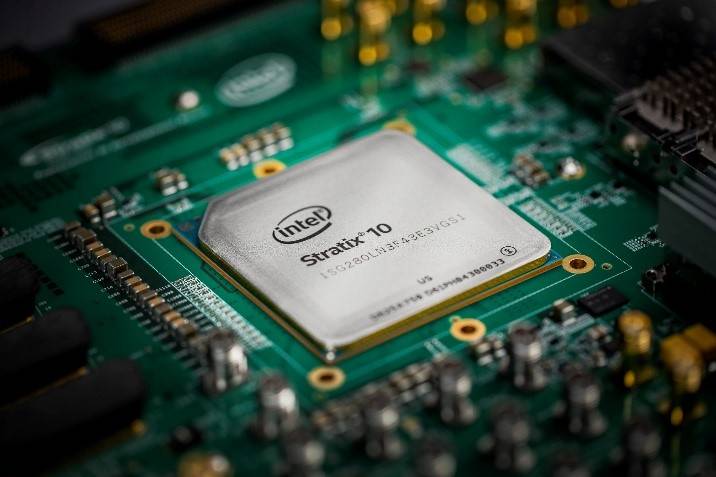A decade after gobbling up Altera, Intel is loosening its grip. On Monday, the x86 giant said it's flogging a 51 percent stake in the FPGA slinger to private equity firm Silver Lake. The deal , which values Altera at $8.
75 billion, is expected to bring in $4.46 billion in cash when it closes in the second half of this year. While by no means a small chunk of change, it's nowhere near the $16.

7 billion Intel paid for Altera, a Field Programmable Gate Array (FPGA) designer, back in 2015. In a statement on Monday, Intel boasted that the deal will establish Altera as the "largest pure-play FPGA" vendor in the world — though that's only because its much larger rival Xilinx happens to be owned by AMD these days. FPGA are deployed in all sorts of things, from telecoms equipment and financial trading systems, to reborn retro gaming consoles.
They also play a key role in chip design, where they're used to prototype hardware for testing and validation before taping out. These devices are prized for their flexibility as they can be reconfigured by engineers to perform a variety of tasks, including glue logic, peripheral control, in-line data processing, and other applications where volumes are insufficient to justify the development and production of dedicated ASICs. An FPGA can be programmed to act as a network switch, or an IO controller, or an image processor, or whatever it needs to be for a particular hardware application.
Silver Lake's majority stake in Altera had been rumored since February, and comes as newly minted CEO Lip-Bu Tan looks to staunch Intel's bleeding amid massive losses over the past year. In 2024, Intel reported $18.8 billion in net losses and $53.
1 billion in revenue. While Altera accounted for only a fraction of that, with an operating loss of $615 million in 2024 on revenues of $1.54 billion, Intel had been laying the groundwork to spin off a sizable chunk of its FPGA biz for some time.
In late 2023, Intel announced plans to hive off its Platform Solutions Group, which oversaw FPGA design and production, into an independent company (later dubbed Altera in a reprise of the acquired brand). Former Datacenter and AI group chief Sandra Rivera was tapped to lead the effort, with an eventual IPO on the horizon. It seems Rivera's time at Altera has already come to a close.
The former President of Products and Technologies at Marvell, Raghib Hussain, is set to take her place early next month. Hussain previously held roles at Cavium, Cisco, and Cadence. Notably, he passed through Cadence long before Tan took the reins there.
"Today's announcement reflects our commitment to sharpening our focus, lowering our expense structure and strengthening our balance sheet," Tan said in a canned statement. Intel may be giving up majority control over Altera, but Tan still has a seat at the table for now. The chipmaker will retain a 49 percent stake in Altera moving forward.
The x86 giant has yet to say whether it is open to selling off additional shares of Altera in the future. We've asked for further comment and will let you know what we find out. ®.
Technology

Intel flogs off majority stake in Altera to private equity for $4B

Buy high, sell low: FPGA biz cost x86 giant $16B decade ago A decade after gobbling up Altera, Intel is loosening its grip. On Monday, the x86 giant said it's flogging a 51 percent stake in the FPGA slinger to private equity firm Silver Lake....














